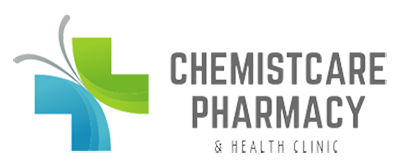
The main symptoms of bronchiectasis are:
Other symptoms can include:
Symptoms such as a cough or coughing up phlegm are common and can be caused by other conditions such as chest infections.
You can call 111 or get help from 111 online.
Do not drive to A&E. Ask someone to drive you or call 999 and ask for an ambulance.
Bring any medicines you take with you.
If you have symptoms of bronchiectasis a GP will listen to your chest.
They may arrange some tests such as:
If these tests show you could have bronchiectasis, you'll be referred to a specialist for more tests such as a CT scan to confirm the diagnosis.
You may also need other tests to find the cause.
Bronchiectasis cannot usually be cured. The aim of treatment is to manage your symptoms and help stop them getting worse.
You'll be supported by a GP, nurse, physiotherapist, and sometimes a specialist doctor. You'll have check-ups and tests at least once a year. Your care team will work with you to develop a plan to help you manage your condition.
You may also need treatment for any conditions that have caused bronchiectasis.
You'll see a specialist physiotherapist, who will teach you breathing techniques for clearing phlegm (mucus) from your lungs and airways. They may also recommend a hand-held device you breathe into that uses vibrations to help clear your chest.
You'll usually need to do these exercises every day. This helps to control your cough and reduce the risk of chest infections.
If your phlegm is difficult to cough up, your care team may recommend using a machine called a nebuliser to breathe in a salt solution before doing the exercises.
If you have problems with shortness of breath you may also be offered a course led by a physiotherapist, called pulmonary rehabilitation. This will include exercise classes and advice on managing your condition.
You'll usually be asked to give your doctor a sample of phlegm when you're unwell or if your symptoms change. The sample will be checked for a chest infection, and if you have one you'll need to take antibiotics.
You may be given antibiotics to keep at home (a rescue pack) for when you get symptoms of a chest infection. Your care team will give you instructions on when to take them.
If you get more than 3 chest infections a year, a specialist may recommend you take antibiotics long term to help prevent them.
You may also be offered other medicines, such as inhalers to help your breathing.
If you have severe symptoms and medicines have not helped, you may be offered other treatments such as:
If you have bronchiectasis there are things you can do to help with symptoms and reduce the risk of chest infections.
exercise regularly, to stay fit and help clear your lungs – your care team can give you exercise advice
eat a healthy, balanced diet and keep to a healthy weight – this can help with shortness of breath and preventing infections
wash your hands regularly, to help prevent infections
try to stay away from people with infections such as colds and flu
have regular vaccinations such as the flu vaccine every year, and the pneumococcal vaccine and COVID-19 vaccine as recommended by your GP
do not smoke – get help to quit smoking if you need it
Bronchiectasis affects everyone differently. How it affects you depends on how severe your symptoms are and how often you get chest infections.
It's also common to have bronchiectasis together with another condition that affects your lungs, such as asthma or chronic obstructive pulmonary disease (COPD).
Some people find their condition gets worse and they get breathing problems that can be serious and affect their daily life. In rare cases it can be life-threatening.
But some people have less severe symptoms that can be managed well with treatment.
Bronchiectasis happens when your airways are damaged by inflammation. They become wider than usual, and this causes phlegm (mucus) to build up. Too much phlegm can lead to chest infections.
There are many possible causes of damage to your airways, including:
For many people it's not clear what the cause is.
As well as support from your healthcare team, you may find it helpful to get support from other people with bronchiectasis, either at a local support group or online.
There are also charities that can offer support and information about bronchiectasis.
Information and support for anyone affected by lung conditions including bronchiectasis.